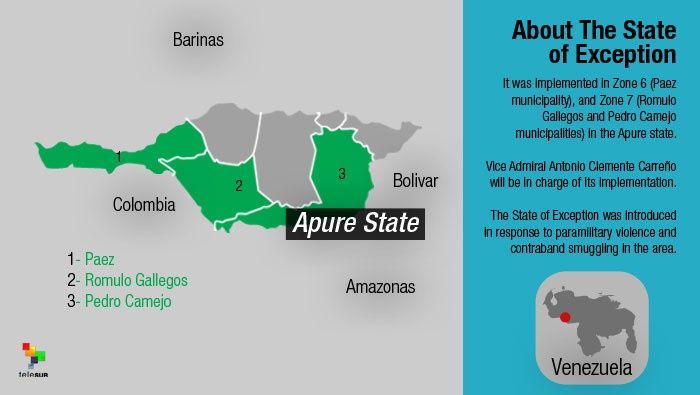Venezuela is a particular target for paramilitaries due to its subsidized economy — which provides plunder for smuggling — and socialist government, whose policies are despised by many sectors of Colombia’s and Venezuela’s right-wing elite, which have been linked numerous times to the paramilitaries since their rise in the ‘80s and ‘90s.
Caracas responded to the threat the paramilitaries pose to people in border regions by starting an operation to combat illegal activity and restore peace for people living on both sides. During this period, some Colombians living illegally in Venezuela were repatriated — approximately 1,200 people of the more than 5 million Colombian nationals living accross the border. Colombia’s president responded to this by saying Venezuela was attacking the rights of his people, ignoring the fact his people live in a country still in civil war.
This In Depth special looks at Venezuela’s border operation to crack down on paramilitary activity, the contraband problem on both sides of the border, teleSUR’s ongoing news coverage, Bogota’s hypocrisy, and what Colombians make of all this.
This article should be read in conjunction with In Depth – Paramilitaries in Colombia, which looks at the wider effect of the death squads in the rest of the country.

The sharp rise in paramilitary activity in Venezuela has been most notable in the states of Zulia and Tachira, both bordering Colombia and governed by the right-wing opposition. Read More...

Latest News on the Border Operation
Infographics: Where are the States of Exception?
With the aim of recovering preventing food smuggling and paramilitary activity, the first day of a state of exception began on Saturday in the southern border regions.
More than 2,000 soldiers from the National Bolivarian Armed Forces and other state security forces were deployed in the early hours of the morning to the La Invasion region in San Antonio, Tachira state.


Shortages, Smuggling and Paramilitaries in Venezuela
While opposition leaders often blame a lack of foreign exchange, price controls, and a fiscal deficit as the primary causes for the shortages, the Venezuelan government has claimed that economic sabotage by the private sector, speculation and smuggling of goods to Colombia are more to blame. Read more...
teleSUR Explores the Colombia-Venezuela Smuggling Problem
Venezuela's closure of its border with Colombia is already hitting the profits of the smuggling industry, according to street vendors who spoke to teleSUR. In the Colombian border city of Cucuta, a street vendor identified as Freddy said almost all the products he sells come from Venezuela. “We have been very affected by the border closure ... our sales have dropped by 80 percent,” he told teleSUR correspondent Milton Henao. Read more...
There are many Colombians living in Venezuela. Most are displaced, either by choice or as refugees, by the country’s over-half-a-century-long internal conflict, which has generated the most refugees in the world after Syria.
The Height of Hypocrisy: Santos Lectures Others on Human Rights
President Nicolas Maduro’s decision to order the temporary closure of the Venezuela-Colombia border for national security purposes has sparked protests from Colombia, complaining the deportation of over 1,000 undocumented Colombians living in Venezuela has produced a “humanitarian crisis.” In response to the decision, Colombian President Manuel Santos claimed that the welfare of these individuals and the protection of their rights was a priority for his administration. Santos also revealed that his government was now considering whether to take Venezuela to the International Criminal Court for “crimes against humanity” committed against Colombian migrants — painfully ironic considering the ICC’s current investigation into crimes against humanity committed in Colombia since 2002. Read more…
Infographic: Colombians in Venezuela

Snapshots: Colombians Respond to Border Closures